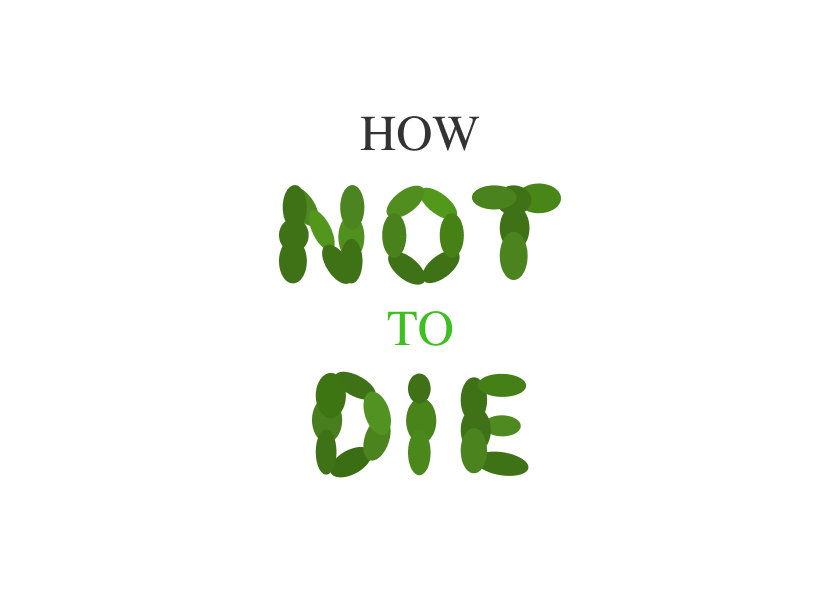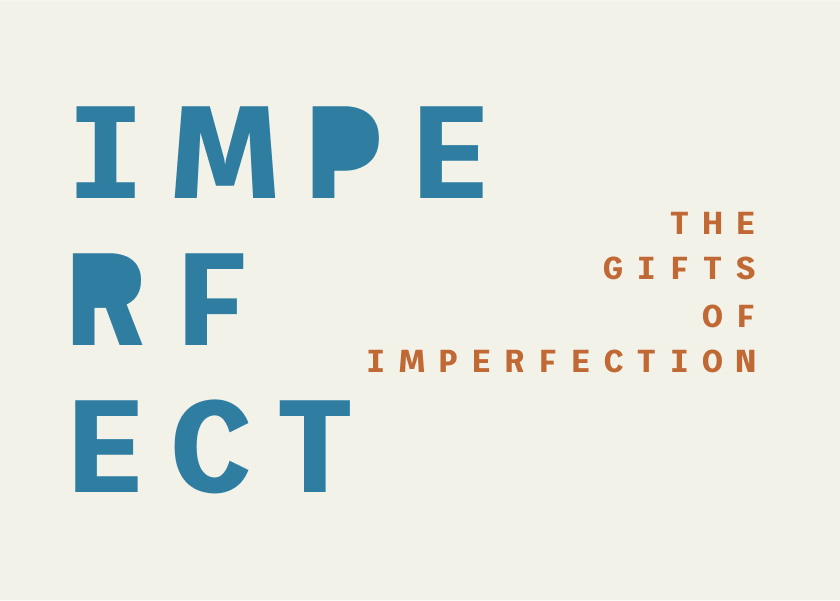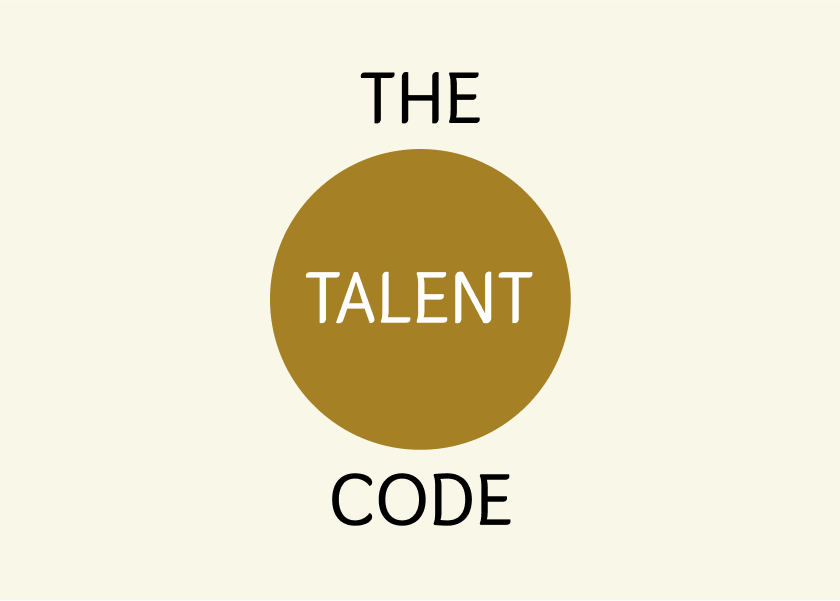How Not to Die by Michael Greger - Summary
Discover the power of food to transform your health. Learn how a plant-based diet can prevent, treat, and even reverse the 15 leading causes of death. Find out what you should eat every day. This book reveals the science of healthy living and empowers you to take charge of your well-being.

The following is a summary of Michael Greger's book How Not to Die.
Listen to ShelfHelp's podcast about the book How Not to Die by Michael Greger.
Is Your Diet Slowly Killing You? Discover How to Eat Your Way to Health
Are you confused by conflicting nutrition advice? Do you worry about developing a chronic disease? How Not to Die by Dr. Michael Greger offers a science-backed approach to eating for optimal health. This book cuts through the noise to show how a plant-based diet can prevent, treat, and even reverse the fifteen leading causes of death in the United States. This article will provide an in-depth summary of the book, and key takeaways to help you make better choices about food.
Table of Contents
- About the Author
- Who Should Read This Book?
- Key Insights and Themes
- Detailed Summary
- Review
- Actionable Takeaways
- FAQs
- Conclusion
About the Author
Dr. Michael Greger is a physician, author, and internationally recognised speaker on nutrition, food safety, and public health issues. He runs the popular website NutritionFacts.org, a non-profit, science-based public service providing free daily updates on the latest in nutrition via bite-sized videos. Dr. Greger has lectured at the National Institutes of Health, testified before Congress, and was an expert witness in Oprah Winfrey’s defense at the Texas ‘meat defamation’ trial. A founding member of the American College of Lifestyle Medicine, he is licensed as a general practitioner specializing in clinical nutrition. He currently serves as the Director of Public Health and Animal Agriculture at the Human Society of the United States. Dr. Greger is a graduate of the Cornell University School of Agriculture and the Tufts University School of Medicine. His dedication to making evidence-based nutrition freely accessible makes him a highly credible source on the topic. All proceeds from his books, DVDs, and speaking engagements go directly to charity.
Who Should Read This Book?
This book is for anyone who wants to take control of their health through diet. It is particularly beneficial for:
- Individuals with a family history of chronic diseases such as heart disease, cancer, or diabetes.
- Those seeking to prevent or reverse existing health conditions.
- People looking for practical and actionable advice on healthy eating.
- Anyone feeling overwhelmed by conflicting nutrition information and wanting science-based guidance.
- Those interested in a plant-based diet and wanting to learn more about its benefits.
For example, if you’re a busy professional who struggles to maintain a healthy diet, or if you're concerned about a recent health diagnosis, or simply want to understand the science behind healthy eating, this book will offer you practical solutions and advice based on the latest research.
Key Insights and Themes
Here are some of the key takeaways from How Not to Die:
- Food as Medicine: A plant-based diet is a powerful tool for preventing, treating, and reversing many chronic diseases.
- Evidence-Based Nutrition: The book emphasizes the importance of relying on scientific evidence rather than popular trends or anecdotal claims.
- The Power of Whole Foods: Prioritizing whole, plant-based foods over processed items and supplements is crucial for health.
- The Daily Dozen: Dr. Greger's "Daily Dozen" checklist provides a practical guide to incorporating essential foods into one's diet.
- Lifestyle Choices Matter: Factors beyond diet, such as exercise, sleep, and stress management, play significant roles in overall health.
- Challenging Conventional Dietary Advice: The book critiques official dietary recommendations that may be influenced by industry or practicality, rather than ideal health.
Detailed Summary
How Not to Die is divided into two parts: the "why" and the "how".
Part 1: The "Why"
This section explores the role of diet in preventing and reversing the fifteen leading causes of death in the United States.
- Chapter 1-15: The Leading Causes of Death: Each chapter examines one of the top 15 causes of death, explaining the scientific research on how diet can play a crucial role in prevention and treatment. These chapters cover topics like heart disease, cancer, diabetes, and Alzheimer’s, demonstrating how plant-based foods can make a significant difference. For example, the book explains that heart attacks are considered 96 percent avoidable in women who eat a wholesome diet and engage in other healthy lifestyle behaviors. The book also points to studies that suggest that a plant based diet has been proven to reverse heart disease in the majority of patients.
Part 2: The "How"
This section focuses on practical aspects of adopting a healthy, plant-based diet.
- Introduction to Part 2: Dr. Greger introduces his "Traffic Light" system to help identify the healthiest food options, and a "Daily Dozen" checklist to help incorporate essential foods into your diet.
- The Daily Dozen: The book then explores each of the "Daily Dozen" checklist items, which include:
- Beans: A serving of beans, such as chickpeas, lentils or black beans.
- Berries: A serving of berries, which are high in antioxidants.
- Other Fruits: At least three servings of other fruits, which can be fresh, frozen, or dried.
- Cruciferous Vegetables: A serving of vegetables such as broccoli, kale or cabbage.
- Other Vegetables: At least two servings of other vegetables, such as leafy greens or carrots.
- Flaxseeds: One tablespoon of ground flaxseeds, which are high in omega-3 fatty acids.
- Nuts: A serving of nuts, such as walnuts or almonds.
- Herbs and Spices: Incorporating a variety of herbs and spices into your meals, especially turmeric.
- Whole Grains: A serving of whole grains, like oatmeal, quinoa or brown rice.
- Beverages: Five glasses of water daily.
- Exercise: Ninety minutes of moderate-intensity exercise daily.
- Vitamin B12: A daily dose of Vitamin B12. A B12-fortified plant-based diet can offer health benefits for all stages of life.
- Individual Food Chapters: Each chapter in this section focuses on particular food groups and explains the science behind the recommendations, and the best ways to prepare them. For instance, in the chapter on cruciferous vegetables, Dr. Greger shares a story about how he used to teach medical students about the amazing therapeutic qualities of "iloccorB," which he would reveal to be broccoli, to emphasize the power of this particular vegetable.
- Practical Tips: The book also provides real-world tips for grocery shopping and meal planning, making it easier to adopt a healthy lifestyle. It also provides recommendations on how to prepare some of the daily dozen checklist items and some tricks that the author uses to prepare them.. For example, Dr. Greger recommends a simple peanut butter and banana sandwich as one quick way to check off four boxes.
- Salt Reduction: The book also provides guidance on how to reduce salt intake. Reducing salt intake by half a teaspoon a day may prevent 22% of stroke deaths and 16% of fatal heart attacks.
- Exercise Recommendations: The book also recommends daily exercise, and points to studies that show that while an hour of brisk walking was good, 90 minutes was better.
Review
Strengths:
- Evidence-Based Approach: The book is heavily grounded in scientific research, making it a reliable source of nutrition information.
- Practical Advice: The "Daily Dozen" checklist and the "Traffic Light" system provide practical, actionable steps for improving one's diet.
- Comprehensive Coverage: The book covers a wide range of topics, addressing the major health concerns of modern society.
- Clear and Accessible: Dr. Greger presents complex scientific concepts in an easy-to-understand manner.
- Non-profit Focus: The author's commitment to providing free information through NutritionFacts.org adds to his credibility.
Weaknesses:
- May Seem Overwhelming: The volume of information can be overwhelming for some readers.
- Rigorous Approach: The strict adherence to a plant-based diet may be challenging for some people to adopt.
- Repetitive: Some information is repeated in different chapters to drive home the points being made.
Actionable Takeaways
How to Apply These Lessons in Real Life
- Start with the Daily Dozen: Begin by incorporating the foods listed in Dr. Greger’s Daily Dozen checklist into your diet.
- Prioritize Whole Plant Foods: Focus on eating whole, unprocessed plant-based foods, such as fruits, vegetables, beans, and grains.
- Reduce Processed Meats: Limit or eliminate processed meats, which have been linked to many health issues.
- Increase Water Intake: Drink at least five glasses of water each day, in addition to water from the food in your diet.
- Get Moving: Incorporate at least 90 minutes of moderate-intensity exercise into your daily routine.
- Use the Traffic Light System: Use the traffic light system described in the book to make healthier food choices.
- Visit NutritionFacts.org: Use the information and videos on the website to help reinforce your health journey.
- Reduce Salt Intake: Reduce salt intake by avoiding salty foods and not adding salt to meals.
FAQs
- What is "How Not to Die" about? "How Not to Die" is a book by Dr. Michael Greger that explores how a plant-based diet can prevent and reverse the fifteen leading causes of death in the United States. It is rooted in science and offers practical advice for achieving optimal health.
- Is "How Not to Die" worth reading? Yes, it is highly recommended for anyone seeking to improve their health through diet. It provides comprehensive, science-backed information and actionable advice to transform your eating habits.
- What is the Daily Dozen? The Daily Dozen is a checklist of foods that Dr. Greger recommends incorporating into one's daily diet, including beans, berries, fruits, cruciferous vegetables, nuts, flaxseeds, and spices.
- Does the author recommend supplements? The author generally recommends that people get nutrients from whole foods. However, he does recommend a Vitamin B12 supplement for anyone following a plant based diet, and an algae derived omega 3 supplement.
- Is the diet recommended in this book difficult to follow? While adopting a strictly plant-based diet may require some adjustments, the book provides practical tips to make the transition easier and more manageable.
Conclusion
How Not to Die is more than just a diet book; it’s a comprehensive guide to understanding the power of food in shaping your health destiny. Dr. Greger’s commitment to making evidence-based nutrition accessible, combined with his practical advice, makes this book a must-read for anyone looking to take control of their health. By following the recommendations in this book, you can make informed choices about what you eat and empower yourself to live a healthier, longer life. Don't wait any longer to transform your health.
As an Amazon Associate, ShelfHelp may earn money from qualifying purchases. Needless to say, ShelfHelp only includes affiliate links to books we recommend and think are worth your time reading.




